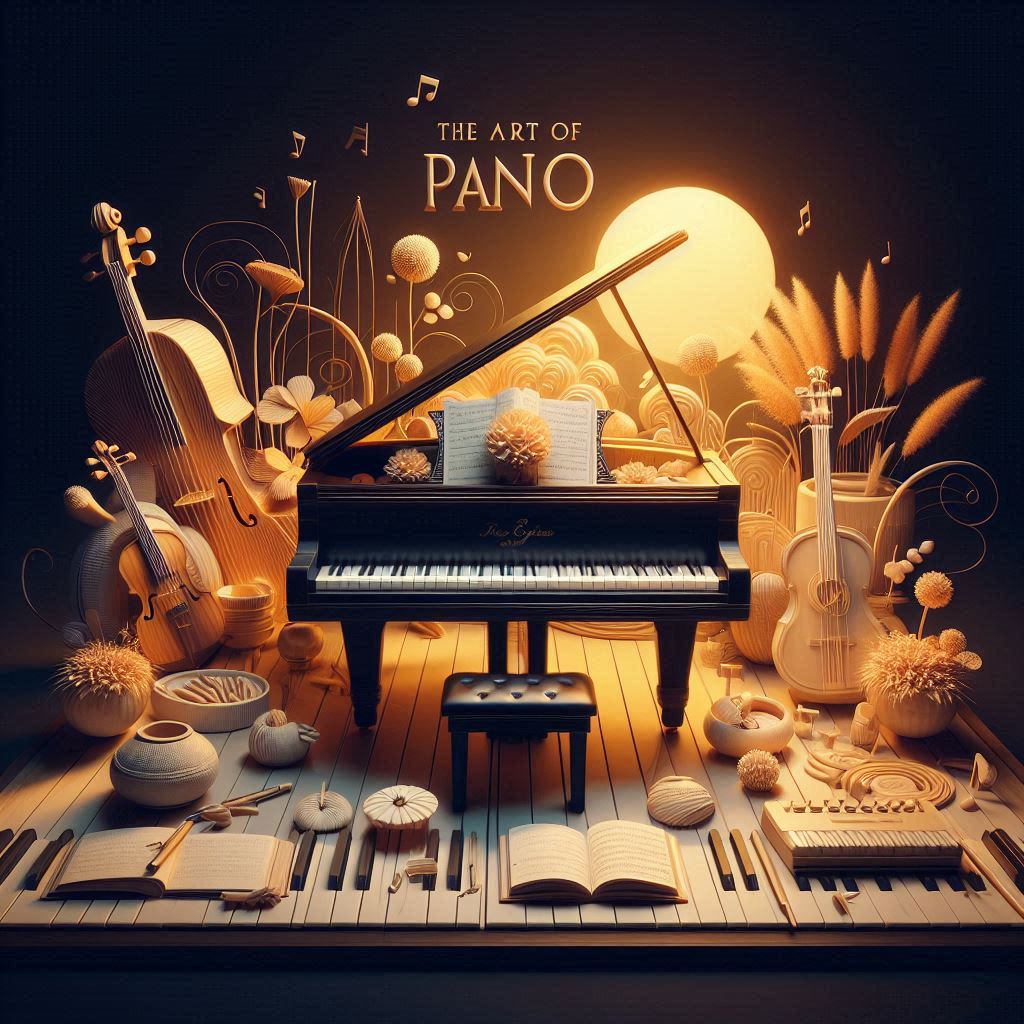Introduction
Understanding music theory is akin to learning the grammar of a language. For pianists, this knowledge can transform the way they approach their instrument, enhancing their technical skills, interpretive abilities, and overall musicianship. This article explores the significant impact of music theory on piano playing, from foundational concepts to advanced applications.
The Impact of Music Theory on Piano Playing
Understanding Music Theory
Music theory encompasses the study of the fundamental elements of music, including notation, harmony, rhythm, scales, chords, and form. It provides a framework for understanding how music is constructed and communicated.
The Importance of Music Theory for Pianists
Enhancing Technical Skills
Music theory aids in understanding fingerings, hand positions, and technical exercises. Knowledge of scales and arpeggios, for instance, forms the basis for finger dexterity and strength.
Improving Sight-Reading Abilities
Sight-reading requires quick recognition of musical symbols and patterns. Music theory knowledge helps pianists decipher these elements efficiently, leading to more accurate and fluent playing.
Foundations of Music Theory
Notation and Symbols
Understanding notation and musical symbols is the first step in reading and interpreting music. This includes knowledge of notes, rests, dynamics, and articulation marks.
Scales and Modes
Scales and modes are the building blocks of melody and harmony. Familiarity with major, minor, and modal scales aids in improvisation and composition.
Intervals and Chords
Intervals and chords form the harmonic foundation of music. Recognizing and constructing chords and intervals enhances harmonic understanding and accompaniment skills.
Harmonic Analysis
Chord Progressions
Analyzing chord progressions helps pianists understand the harmonic structure of a piece. This knowledge aids in memorization and provides insight into the composer’s intentions.
Cadences
Cadences signify the end of musical phrases. Understanding different types of cadences (perfect, plagal, deceptive) enhances interpretive decisions and phrasing.
Rhythmic Understanding
Time Signatures and Rhythm Patterns
Comprehending time signatures and rhythm patterns is crucial for accurate timing and synchronization. Complex rhythms and syncopations become more manageable with a solid rhythmic foundation.
Polyrhythms and Cross-Rhythms
Advanced pieces often feature polyrhythms and cross-rhythms. Music theory provides the tools to decode and master these intricate rhythmic structures.
Form and Structure
Musical Forms
Understanding musical forms (sonata-allegro, rondo, theme and variations) provides a roadmap for interpreting and performing a piece. It reveals the architecture of the composition.
Phrase Structure
Analyzing phrase structures helps in shaping musical phrases and creating expressive interpretations. Recognizing antecedent and consequent phrases enhances musical storytelling.
Aural Skills Development
Ear Training
Ear training, an integral part of music theory, develops the ability to recognize pitches, intervals, chords, and rhythms by ear. This skill is crucial for improvisation and playing by ear.
Transcription
Transcribing music by ear reinforces theoretical knowledge and improves aural acuity. It is a valuable exercise for understanding musical nuances and details.
Improvisation and Composition
Improvisational Skills
Music theory provides the foundation for improvisation. Understanding scales, modes, and chord progressions allows pianists to create spontaneous and coherent musical ideas.
Compositional Techniques
Knowledge of music theory aids in composition, enabling pianists to construct melodies, harmonies, and forms systematically. It fosters creativity and originality in musical creation.
Enhancing Interpretive Abilities
Historical Context
Understanding the historical and stylistic context of a piece informs interpretive decisions. Music theory knowledge provides insights into the performance practices of different musical eras.
Expressive Playing
Music theory helps pianists understand the emotional and structural elements of a piece, leading to more expressive and nuanced performances.
Integrating Music Theory into Practice
Theoretical Analysis
Incorporate theoretical analysis into daily practice. Analyzing pieces before playing them deepens understanding and enhances technical and interpretive preparation.
Practical Applications
Apply music theory concepts directly to the keyboard. Practice scales, chords, and arpeggios regularly, and experiment with improvisation and composition.
Overcoming Common Challenges
Bridging the Gap Between Theory and Practice
Many pianists struggle to apply theoretical knowledge practically. Regularly integrating theory into practice sessions bridges this gap, making theoretical concepts more tangible.
Avoiding Overwhelm
Music theory can be overwhelming. Focus on mastering one concept at a time, gradually building a comprehensive understanding without feeling inundated.
The Role of Teachers and Resources
Guidance from Teachers
Teachers play a crucial role in conveying music theory concepts and their practical applications. Seek guidance and feedback to ensure a solid grasp of theoretical principles.
Utilizing Resources
Utilize books, online courses, and apps designed to teach music theory. Resources like “The Complete Musician” by Steven Laitz and websites like MusicTheory.net offer valuable tools for learning.
Real-Life Applications and Success Stories
Famous Pianists
Many renowned pianists attribute their success to a deep understanding of music theory. For instance, legendary pianist and composer Sergei Rachmaninoff possessed profound theoretical knowledge, which influenced his exceptional compositions and performances.
Student Experiences
Students who integrate music theory into their practice often experience significant improvements in their playing. Real-life examples highlight the transformative power of theory.
FAQs
How can music theory improve my piano playing? Music theory enhances technical skills, sight-reading, improvisation, and interpretive abilities. It provides a comprehensive understanding of the music, making practice and performance more effective.
Is it necessary to learn music theory to play the piano well? While it is possible to play the piano without formal music theory knowledge, understanding theory significantly enhances musicianship, interpretive skills, and overall musical understanding.
What are some essential music theory concepts for pianists? Essential concepts include notation, scales, chords, intervals, rhythm, form, and harmonic analysis. These elements form the foundation of musical understanding and performance.
Can music theory help with piano composition? Yes, music theory provides the tools needed to construct melodies, harmonies, and forms systematically. It fosters creativity and originality in composition.
How can I integrate music theory into my practice routine? Incorporate theoretical analysis into practice sessions, apply concepts directly to the keyboard, and regularly practice scales, chords, and arpeggios. Use resources like books and online courses for guidance.
What resources are available for learning music theory? Books like “The Complete Musician” by Steven Laitz, websites like MusicTheory.net, and various online courses and apps offer valuable tools for learning music theory.
Conclusion
The impact of music theory on piano playing is profound and far-reaching. By understanding and applying theoretical concepts, pianists can enhance their technical skills, interpretive abilities, and overall musicality. Embrace music theory as an integral part of your piano journey to unlock your full potential as a musician.



